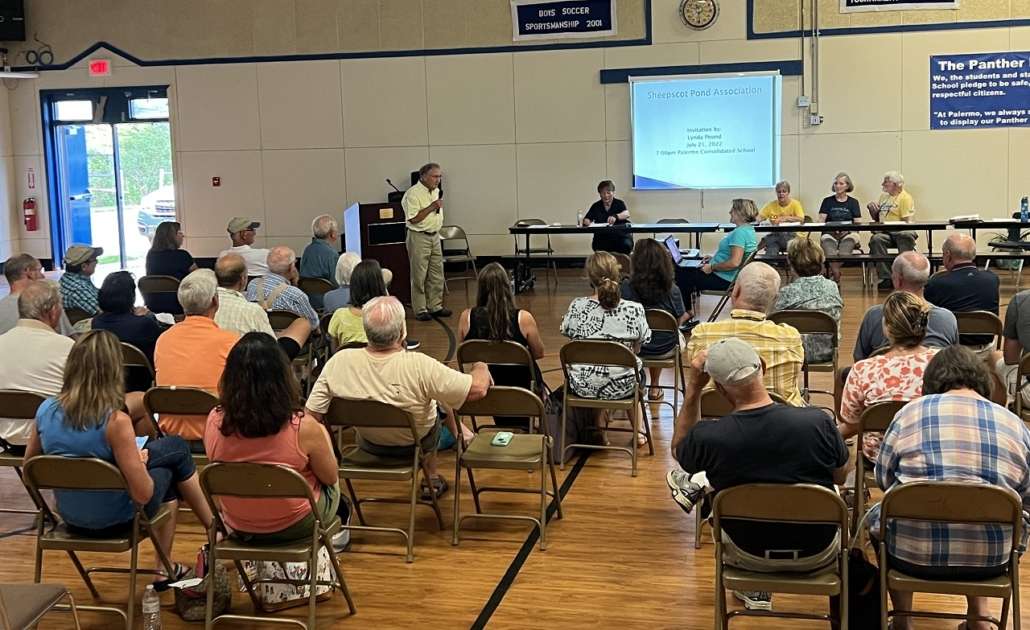Property tax stabilization program guides provided to Maine municipalities
 Property Tax Stabilization for Senior Citizens, also known as the Property Tax Stabilization Program (the “Program”), is a State program that allows certain senior-citizen residents to stabilize, or freeze, the property taxes on their homestead. An applicant must be at least 65 years old, a permanent resident of the State, and must have owned a Maine homestead for at least ten years. As long as the individual files an application and qualifies each year, the tax billed to them for their homestead will continue to be fixed at the amount they were billed in the prior tax year. Eligible residents who move may transfer the fixed tax amount to a new homestead, even if that new homestead is in a different Maine municipality.
Property Tax Stabilization for Senior Citizens, also known as the Property Tax Stabilization Program (the “Program”), is a State program that allows certain senior-citizen residents to stabilize, or freeze, the property taxes on their homestead. An applicant must be at least 65 years old, a permanent resident of the State, and must have owned a Maine homestead for at least ten years. As long as the individual files an application and qualifies each year, the tax billed to them for their homestead will continue to be fixed at the amount they were billed in the prior tax year. Eligible residents who move may transfer the fixed tax amount to a new homestead, even if that new homestead is in a different Maine municipality.
For example, if an individual applies by December 1, 2022, and qualifies for the Program, the amount of tax billed to the individual for the April 1, 2023, tax year will be the same as the amount billed to them for the April 1, 2022, tax year. As long as the individual continues to qualify and to file timely annual renewal applications, the amount they are billed will be frozen at the amount billed for the April 1, 2022 tax year. The State will reimburse the municipalities for the difference between the amount billed the participating individual and the tax that would otherwise be due.
The law goes into effect on August 8, 2022, and applies to property tax years beginning April 1, 2023. Interested taxpayers will need to first apply with the municipality where their homestead is located on or before December 1, and then reapply each year by December 1.
Program Administration
Maine Revenue Services (“MRS”):
- Provides applications, instructions, and guidance for participants and municipal officials.
- Annually reviews all claims for reimbursement filed by affected municipalities and
reimburses qualifying municipalities by January 15 for 100% of the difference between the amount billed the participating individual and the tax that would otherwise be due.
Municipality: - Accepts applications to the Program.
- Verifies eligibility and notifies applicants whether approved or denied.
- Tracks properties in the Program, the stabilized amounts, and the tax that would
otherwise have been assessed. - Retains applications for reference and for state valuation audit purposes.
- Annually applies with MRS for reimbursement by November 1.
Eligible Individuals
To be eligible for the Program, an individual must meet all of the following as of April 1 of the property tax year for which they are requesting stabilization (so for applications due December 1, 2022, qualifications must be met as of April 1, 2023):
- Be 65 years old or older.
- Be a permanent resident of Maine.
- Have owned a homestead in Maine for at least ten years. The ten-year period does not
have to be consecutive. - Be eligible for a homestead exemption under 36 M.R.S. §§ 681 – 689 on the property which they are requesting stabilization.
If a homestead is owned by more than one individual as joint tenants, only one owner needs to qualify for the Program. There is no payback amount if a property is removed from the Program and there is no income or asset limits to qualify.
Eligible Property
- Must be a “homestead,” as defined in the homestead exemption statue, 36 M.R.S. § 681(2):
- “Homestead” means any residential property, including cooperative property, in this State assessed as real property owned by an applicant or held in a revocable living trust for the benefit of the applicant and occupied by the applicant as the applicant’s permanent residence or owned by a cooperative housing corporation and occupied as a permanent residence by a resident who is a qualifying shareholder. A “homestead” does not include any real property used solely for commercial purposes.
- Must be owned by an eligible individual. Application Process
- An individual must file a completed application, including any requested proof of qualification, with their local assessor by December 1.
- The assessor will determine if the applicant qualifies for the program and will notify the applicant whether they have been approved or denied.
- Participants must file a new application with the municipality each year in order to maintain their stabilized tax amount.
- As long as a participant continues to qualify and apply every year, their tax bill will remain the same as it was in the year an application was first submitted.
Program Maintenance - Participants must reapply with the municipality every year by December 1. 2
- If a participant changes their homestead, they must request that the municipality of their former homestead notify the new municipality of their previous eligibility and the stabilized amount, and file a new application with the new municipality.
- If a participant fails to timely file an application one year, the bill for that year would revert to the “normal” amount of tax. They could apply again the next year, but it would then be stabilized at the missed year’s normal tax level.
- Participants must meet all qualifications to continue in the Program, including maintaining Maine residency and maintaining the homestead as their permanent residence.
The text of the new law is available on the Maine Legislature’s website: legislature.maine.gov/bills/getPDF.asp?paper=SP0126&item=5&snum=130.
For more information on the Property Tax Stabilization Program, contact the Property Tax Division of Maine Revenue Services at:
MAINE REVENUE SERVICES PROPERTY TAX DIVISION
P.O. BOX 9106,
AUGUSTA, ME 04332-9106,
Tel: (207) 624-5600,
EMAIL: prop.tax@maine.gov
www.maine.gov/revenue/taxes/property-tax3.


 Waldo County Republicans have announced that Joseph McLaughlin, of Lincolnville, was selected as candidate for Maine House District #40 at a special replacement caucus held July 20 at the Searsmont Town Hall. A note of thanks to all who came out to participate in the caucus. FMI: contact Joe at 207-838-6695.
Waldo County Republicans have announced that Joseph McLaughlin, of Lincolnville, was selected as candidate for Maine House District #40 at a special replacement caucus held July 20 at the Searsmont Town Hall. A note of thanks to all who came out to participate in the caucus. FMI: contact Joe at 207-838-6695. Nomination papers for the November Election will be available Monday, July 25, 2022, at the Vassalboro Town Clerks office. Candidates for office must obtain at least 25 certified signatures to qualify for placement on the November 8, 2022, ballot. The following position is available:
Nomination papers for the November Election will be available Monday, July 25, 2022, at the Vassalboro Town Clerks office. Candidates for office must obtain at least 25 certified signatures to qualify for placement on the November 8, 2022, ballot. The following position is available:








